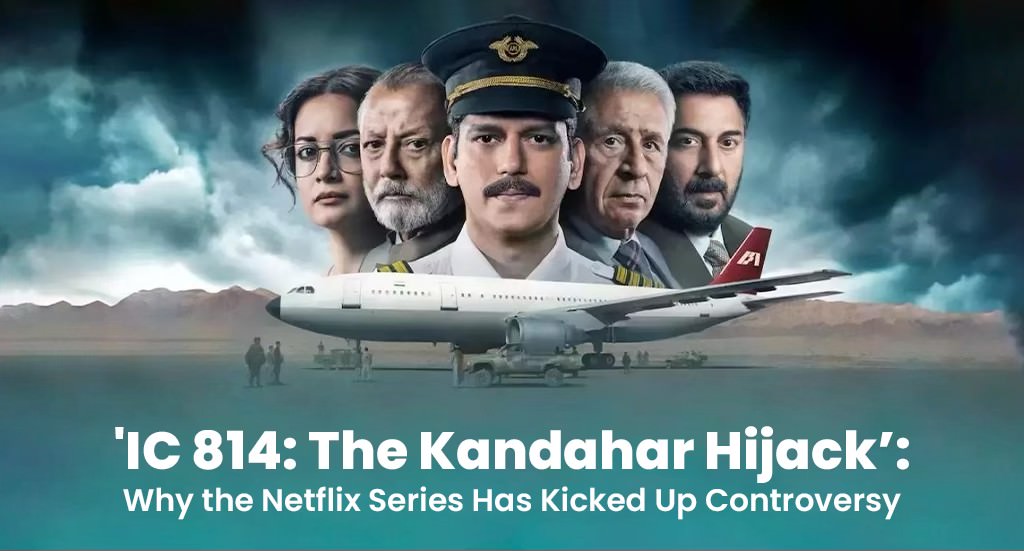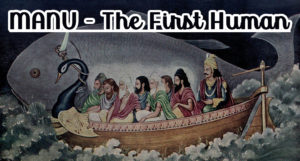Netflix’s web series ‘IC 814: The Kandahar Hijack’ has sparked controversy over its portrayal of the 1999 Indian Airlines flight hijacking. The show has been accused of distorting facts, whitewashing terrorism, and offending public sentiment. In response, Netflix India content chief Monika Shergill was summoned by the Information and Broadcasting Ministry to address concerns, particularly regarding the depiction of hijackers using only their Hindu codenames, which has drawn backlash on social media.
On platforms like X (formerly Twitter), hashtags such as #BoycottNetflix and #BoycottBollywood began trending, with users accusing the filmmakers of distorting history and downplaying the severity of the hijacking. Some social media users claimed the series was a “vile attempt” to whitewash terrorism and vilify the Hindu community by assigning Hindu names to the terrorists.
Amid controversy over the portrayal of terrorists in the web series ‘IC 814: The Kandahar Hijack,’ Netflix has updated the opening credits to include the real names of all hijackers, including two whose ‘Hindu’ codenames had sparked criticism. Monika Shergill, Netflix’s Vice-President of Content, explained that the updated disclaimer aims to clarify for audiences unfamiliar with the 1999 hijacking that the codenames used in the series reflect those from the actual event.
WHAT IS THE ‘IC 814’ ROW?
On December 24, 1999, Indian Airlines Flight IC 814, an Airbus A300 flying from Kathmandu to New Delhi, was hijacked shortly after entering the Indian airspace. Five hijackers, disguised as passengers, took control of the plane, leading to a seven-day hostage crisis. The crisis ended when the Indian government agreed to release three militants. The plane had 191 people on board, including 15 crew members; one passenger was fatally stabbed, and several others were injured.
The series ‘IC 814: The Kandahar Hijack,’ based on the 1999 hijacking of an Indian Airlines flight, depicts the passengers’ ordeal and the government’s challenges as the flight was diverted to multiple locations before ending in Taliban-controlled Kandahar. One passenger was fatally stabbed, and several others were injured. The show has sparked controversy over its portrayal of hijackers using Hindu codenames Bhola and Shankar, which critics argue obscures the fact that all five hijackers were Muslim terrorists. The series is adapted from the book ‘Flight into Fear: The Captain’s Story’ and features a star-studded cast including Vijay Varma, Naseeruddin Shah, and Pankaj Kapur.
In response to the growing controversy, the government has taken notice, with sources indicating that the Ministry of Information and Broadcasting has summoned Monika Shergill, Netflix India’s content head, to address the issue.
A statement issued by the Union Home Minister on January 6, 2000, shortly after the hijacking, provided crucial details about the incident and Pakistan’s Inter-Services Intelligence (ISI) involvement. The statement confirmed that the hijackers—Sunny Ahmed Qazi, Shakir a.k.a Rajesh Gopal Verma, Mistri Zahoor Ibrahim, Shahid Akhtar Sayed, and Ibrahim Athar—used nicknames like Bhola, Shankar, Doctor, and Burger to address each other during the hijacking.
Despite the controversy, the series has become one of the most-watched on Netflix since its release. A statement issued by the Union Home Minister on January 6, 2000, shortly after the hijacking, provided crucial details about the incident and the involvement of Pakistan’s Inter-Services Intelligence (ISI). The statement confirmed that the hijackers — Sunny Ahmed Qazi, Shakir a.k.a Rajesh Gopal Verma, Mistri Zahoor Ibrahim, Shahid Akhtar Sayed, and Ibrahim Athar — used nicknames like Bhola, Shankar, Doctor, and Burger to address each other during the hijacking
Despite the controversy, the series has become one of the most-watched on Netflix since its release.
Politicians Spar over the Issue
Former Union Minister Rajeev Chandrasekhar criticised the series ‘IC 814: The Kandahar Hijack’ on X, questioning why the hijackers were given Hindu names when the attack was carried out by ISI-backed terrorists from Pakistan. He expressed support for the Indian government’s decision to summon Netflix over the issue.
Former Jammu & Kashmir Chief Minister Omar Abdullah found it ironic that those who accepted films like *The Kashmir Files* as factual are now demanding accuracy and nuance in the portrayal of the IC-814 hijacking.
It’s really amusing to see the people who took movies like Kashmir Files as the gospel truth having a melt down at the way the events of IC814 are depicted in the Netflix show. Now suddenly they want accuracy & nuance packaged in the script.
— Omar Abdullah (@OmarAbdullah) September 1, 2024
Shiv Sena-UBT leader Priyanka Chaturvedi criticised the series ‘IC 814: The Kandahar Hijack’ as a reminder of the BJP government’s “massive failure” during the hijacking. She stated that the series highlights how intelligence and government agencies were unprepared, drawing a parallel to the Kargil War.
The RW outrage over a series on IC 814, which I haven’t seen nor endorse, is not as much for the series as it is a reminder of BJP government’s massive failure then, it reminds the nation how the intelligence and government agencies were caught off guard. Much like the Kargil war…
— Priyanka Chaturvedi🇮🇳 (@priyankac19) September 2, 2024
Meanwhile, Journalist Neelesh Misra, author of *173 Hours in Captivity* on the IC-814 hijacking, posted on X that “Chief” was the brother of Maulana Masood Azhar, a radical Islamist in Indian custody at the time, whose release was demanded by the terrorists.
“Shankar”
— Neelesh Misra (@neeleshmisra) August 31, 2024
“Bhola”
“Burger”
“Doctor”
and the “Chief”, the brother of then-jailed Masood Azhar himself.
All the hijackers assumed false names. That is how they referred to each other and how the passengers referred to them throughout the hijacking.
— Regards, the author of the… https://t.co/fZgUZiXxPm
The hijacking of IC 814 remains one of the most significant and traumatic events in India’s aviation history. The week-long ordeal not only tested the resolve of the Indian government but also left a lasting impact on the nation’s security policies. The tragic loss of life and the release of dangerous militants continue to spark debate and reflection on the decisions made during those tense days. Now, let’s see how far will this political row go beyond this.








